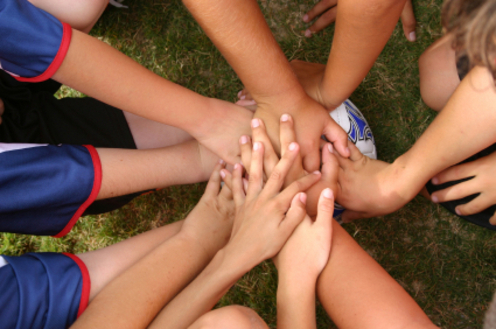Five Things You Should Do, Six You Shouldn’t

We recently featured a study that identified the 5 top reasons kids play sports. As you might have guessed, ‘because it’s FUN’ is at the top of the list while ‘doing something I am good at’ is a close second.
We’ve compiled a list of DO’S and DON’TS for parents who want to help their child enjoy sports and learn great skills.
1. Do your homework.
Make sure the activity your child is interested in is safe. Meet the coaches and visit the play area. Familiarize yourself with the equipment and rules if you don’t already know them. Help your child prepare and set realistic expectations for their participation.
2. Don’t bribe your child to play.
Participation and skill development will be the reward for a child who is having fun in a supportive environment.
3. Let the coaches do their job.
If you’ve done your homework, you can rely on them to assess your child’s skill development and they’ll let you know when your child is ready to advance.
4. Don’t force your child to play a particular sport.
Just because soccer is close and convenient does not mean your child will enjoy it. Let her find a sport that she enjoys and excels at. And make sure she samples a wide variety of activities. It can take time before a child realizes they like a particular sport.
5. Behave yourself.
Don’t curse and yell. Don’t argue with coaches, referees or other parents. Playing sports is an opportunity for your child to experience fair play. It’s a chance for them to learn humility in victory and grace in defeat. And while it’s fine to cheer for your child, it’s better to support all the kids who are out there, having fun.
6. Don’t fixate on a single sport.
Science has proven that children need to develop as all-round athletes before they specialize in one sport. By participating in a variety of sports kids develop many movement skills, avoid injuries from over use and won’t get bored or burned out.
7. Talk to your child.
Learn about their participation and their enjoyment, show your interest and let them know you want them to have fun.
8. Don’t compare your child to others.
Let him enjoy participating without having to worry about others. Not all children will develop at the same time, so skill levels are often different. And not all children will enjoy the same sports. If they aren’t having fun, let them try something else.
9. Get active yourself.
Be a role model for your children, because studies show that active parents have active kids. Nearly 70 percent of children of parents who play sports also play sports, according to a recent Statistics Canada report.
10. Don’t rush things.
As long as they have the opportunity, kids will learn movement and sport skills when they’and their bodies’are ready. Until about age 5, kids should be learning basic motor skills, the FUNdamentals. After age 6 they can sign up for organized sports programs, but make sure there is an emphasis on skill development, not competition.
11. Don’t fixate on results.
Kids can and will be competitive, but they aren’t concerned about who wins or loses. Children play sports because they want to have fun, because they learn and master new skills and because they get to spend time with their friends.















